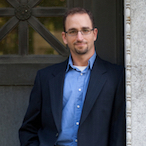How does a planned clean energy project actually get built? The process is not simple, and with the utility usually owning the project after its backers have provided the funding to bring the project to life, the requirements can be overwhelming. One thing that helps virtually assure the project's success is getting venture investment. At the Asia Pacific Clean Energy Summit, I attended a presentation by Timothy Ome of Synergy Advisors (a Venture Capital firm with offices in Honolulu and San Francisco). Synergy Advisors does mergers and acquisitions, private placements, strategic partnering, and independent financing advisory services to find out how the process might look.
Here's the stepwise thought process from the VC's angle/point of view, in terms of questions they ask to determine what they want to invest in.
- What is the stage of the tech/company? They've committed to a barbell investment theory--investments weighted in very early stage and very late stage companies.
- What is the sector?
- What is the geography? I found this question interesting, and the reasoning even more amazing. Typically, they don't invest unless the developer's corporate HQ is within 45 min of Silicon Valley. Ome cites that 45% of investment in clean energy has come from California, and there's a reason for that. Expertise, experience, know-how, ability to quickly connect with others all exist there and few other places. VCs invest locally because these guys become preferred stockholders, not common stockholders. Thus, they sit on the board, have to show up regularly for meetings, and therefore location is key.
- Does it work? (Synergy uses PG&E's venture operations testing lab to check validity of claims). They sign NDAs and have people on retainer who have an ongoing NDA to do the verification and testing.
- Does it solve a problem or create a market? Sometimes technologies create more problems than they solve.
- What is the revenue model? It has to make a lot of money, and a lot of money very quickly. They're of the mindset that there's not really that much that hasn't been invented yet. Bloom Energy is one thing he cites that is an exception.
- Who are the managers? They have a pipeline of people in Silicon Valley to replace CEOs quickly. The average life expectancy of a CEO in Silicon Valley is 12 months.
- What and when is the liquidity event? They get money from very conservative sources, including pension funds and Universities to invest, and they're looking for 5-10x returns.
- What is the government role? They need to know if there's a government grant, a subsidy, etc.
Once Synergy has all of these questions answered, they dig into the financials and decide to invest or not. A question came up about venture partners. Ome cited Intel and Google, who both have funds for clean energy. This is a different model, according to Ome. Often these companies are looking to be the owner/customer of these technologies.
-----------------------------------------------------------------------
Scott Cooney is the developer of a new Triple Bottom Line, Monopoly-esque board game, and the author of Build a Green Small Business (McGraw-Hill).
Follow Scott's company, GreenBusinessOwner.com, on Twitter: Twitter.com/GreenBizOwner

Scott Cooney, Principal of GreenBusinessOwner.com and author of Build a Green Small Business: Profitable Ways to Become an Ecopreneur (McGraw-Hill, November 2008), is also a serial ecopreneur who has started and grown several green businesses and consulted several other green startups. He co-founded the ReDirect Guide, a green business directory, in Salt Lake City, UT. He greened his home in Salt Lake City, including xeriscaping, an organic orchard, extra natural fiber insulation, a 1.8kW solar PV array, on-demand hot water, energy star appliances, and natural paints. He is a vegetarian, an avid cyclist, ultimate frisbee player, and surfer, and currently lives in the sunny Mission district of San Francisco. Scott is working on his second book, a look at microeconomics in the green sector. In June 2010, Scott launched GreenBusinessOwner.com, a sustainability consulting firm dedicated to providing solutions to common business problems by leveraging the power of the triple bottom line. Focused exclusively on small business, GBO's mission is to facilitate the creation and success of small, green businesses.














